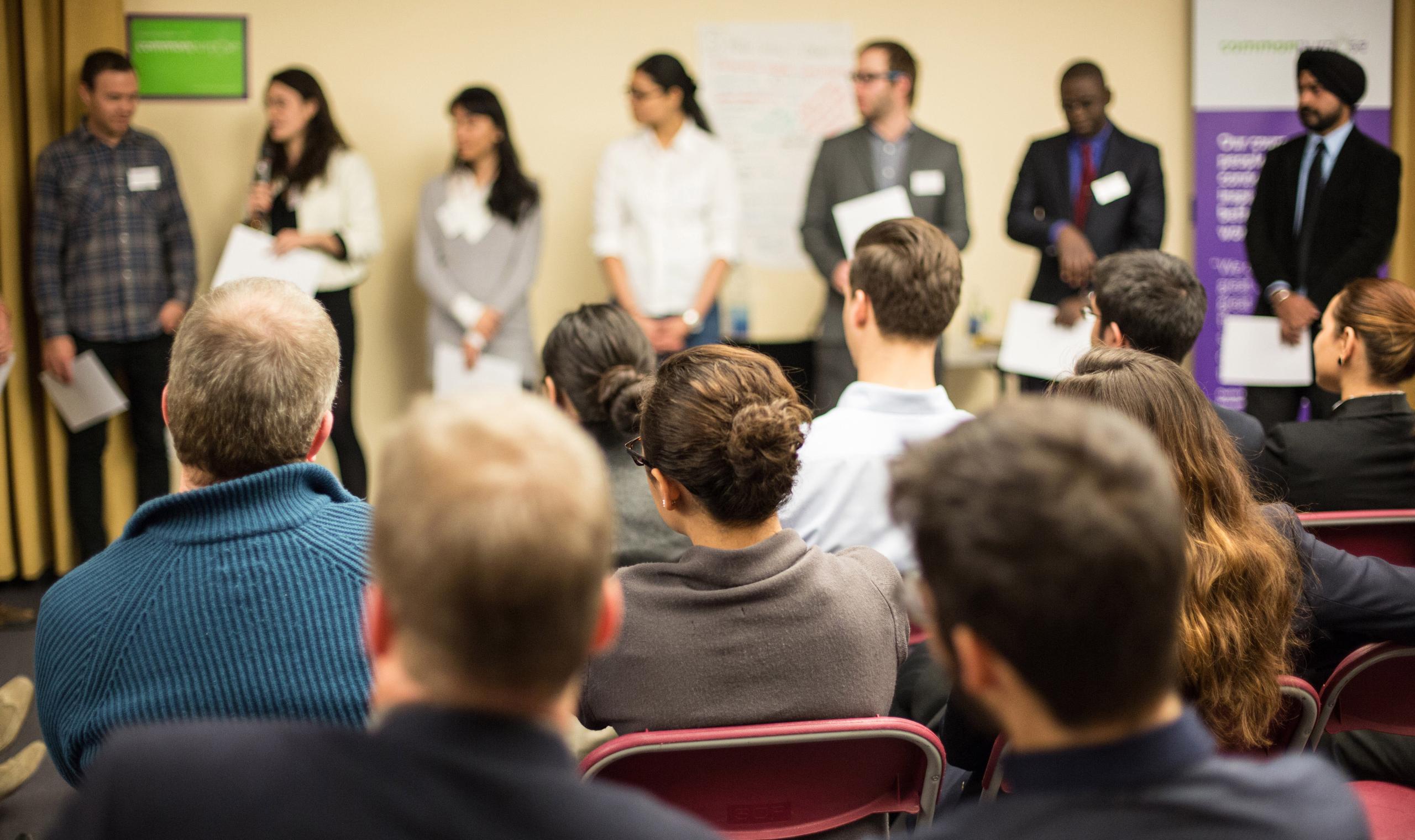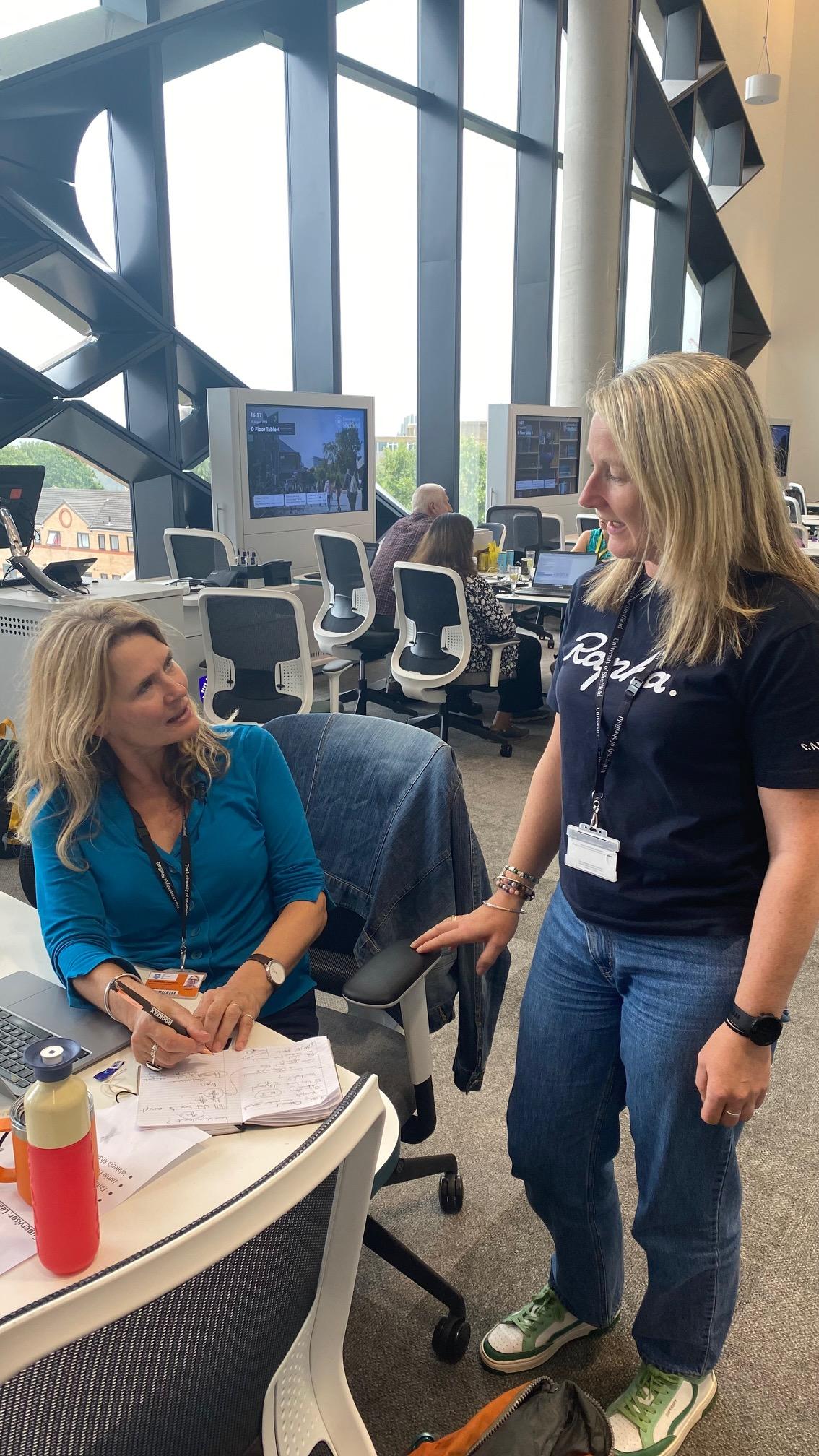-
What we doPersonal development
- Accelerating your impact
- Leadership for young people
- Navigating transitions
- Boosting collaboration
- All programmes
-
Social campaignsSocial campaigns
Taking a stand on social issues. Join us in investing for a better future
Read moreCurrent campaignsRelated -
ImpactEvidence
-
AboutWho we areLocations
Bronwen's Story
Bronwen Ray
/
6 min read
Navigating challenges to achieve leadership transformation.

Bronwen Ray is the Deputy Faculty Director of Operations for Research and Innovation at the University of Sheffield's Faculty of Arts and Humanities. She joined the university after working as an Academic Director at an adult residential college, accepting a two-grade demotion to make the transition. Navigating her new role in a significantly larger and more hierarchical institution presented several challenges, including a loss of confidence, difficulty translating her previous success, and the lack of formal authority and autonomy she once had.
Although she had experienced a variety of leadership development programmes, she was particularly drawn to the Common Purpose programme, recommended by her line manager who previously took part in it.
“I needed to reframe my thinking and break away from the ‘it’s always been like that’ mindset. I was told the programme helps with understanding people, relationships, and values, and I wanted something that would help me see things differently.”
Bronwen’s experience rebuilt her confidence, gave her broader perspectives on different sectors, highlighted the importance of vulnerability and authenticity at work, and provided insights into how to bridge the generational divide that existed.
Regaining confidence and influence
The lack of formal authority was challenging for Bronwen, and she found she was losing confidence. She wondered if her voice held less value without the authority and autonomy she had in her previous role. She felt her years of experience were disregarded. This was emphasized when she considered her career trajectory.
“I was in my mid-40s, a point where you’d expect to be thriving in your career. Moving into this position, it felt very odd not being in the committees and meetings where decisions are being made. I started feeling like my opinion wasn’t as valued, that my voice didn’t matter as much. That’s where my confidence started to drop.”
The programme helped Bronwen regain her confidence, energizing her to take on a secondment, which lead to a more competitive profile and to her current role, at her old grade before joining the University.
“I realised I had the energy to push myself forward and develop. At the end of the programme, I didn’t know where to go next, then the opportunity for a secondment came up, meaning I could broaden my perspective of how the University operates. I’m now at the same level as I used to be in my previous job, and I don’t think I would’ve taken these steps had I not built back my confidence.”
Before becoming Deputy Faculty Director, her newfound confidence changed how she presented herself at work and communicated with peers.
“I had lost any assertiveness and would end emails or conversations with self-doubt and seeking validation. It came from a mindset that those with formal authority and status had the knowledge. Since the programme, I’ve stopped doing that and am comfortable presenting what I have to say with more conviction.”
In addition to regaining confidence, Bronwen took away learnings that stuck with her a year later.
Expanding perspectives through cross-sector insights
Looking to broaden her perspectives, Bronwen was pleased by the diversity of participants. Having spent her career in the public sector, she acknowledged her preconceived notions about the private sector, expecting commercial approaches to be largely disconnected from the arts and humanities. However, her experience was eye-opening.
On a visit to the Newcastle Theatre Royal, Bronwen encountered an example of creative problem-solving in the face of severe funding cuts. Faced with significant financial threat, the theatre worked in partnership with stakeholders to agree a loan repayable over an extended period of time to acquire real estate from a neighbouring business. This move generated a new source of funding, ensuring the theatre’s survival to expand its income generating opportunity and ability to expand its cultural provision.
Bronwen was struck by how this commercial strategy supported the theatre’s mission. It increased her understanding of how cross-sector collaboration can lead to mutually beneficial outcomes and demonstrated that commercial methods can support the arts.

“It was clear that this real estate portfolio existed to support the theatre’s mission. Our faculty often struggles for funding compared to more well-funded STEM faculties because we’re valued in a different way but where would the world be without the arts? This business model is really clever. I don’t see many art organisations following this kind of model and I think we ought to.”
Embracing authenticity and openness
A visit to the offices of Mott MacDonald, a global management, engineering, and development consultancy, provided Bronwen with a key lesson. She met with some of the company’s executives and was impressed by their openness and vulnerability despite their young age. As they discussed the challenges they faced, they mentioned the impact on their mental health and the strategies used to overcome such challenges. Bronwen was astonished, reflecting, “at that age, I would never have shared such personal struggles. It was something you just didn’t do back then, as it could lead to being side-lined completely.”
She was impressed by their confidence in discussing these issues and noted the positive outcomes of such openness. This experience reinforced her belief in the importance of being authentic.
“The programme helped me cement what I’ve instinctively believed for years about the importance of being yourself. While complete transparency isn’t always possible, it’s not about following a script. It’s about being as authentic as you can, staying true to your values, and showing that you mean what you say. I’ve been thinking about it so much since the programme where I had never really thought about it before.”
Enhancing intergenerational collaboration
During the programme, Bronwen heard from senior managers at KPMG and was inspired by their insights on engaging young people in the workforce and fostering intergenerational collaboration.
“It made me think about what I need to do as a leader to ensure that staff feel supported and motivated because everyone has different motivations. One of the speakers talked about the importance of meeting staff where they are, rather than expecting them to align with your own perspective. It’s a completely different type of leadership culture to what I was used to in my career.”
As a result of these insights and because her team is multigenerational, Bronwen initiated conversations with colleagues of varying ages to better understand their perspectives and motivations.
One notable conversation was with an apprentice who openly shared her needs from Bronwen as a line manager - something Bronwen never would have imagined doing with past employers. Reflecting on her own experiences, she noted “In the past, you turned up, you were told what to do and you got on with it. You just had to find a way to fit in because everything was about the business’s needs rather than the individual’s needs.”
Seeing the value of these conversations; she plans to expand this initiative across her entire team.
“I’ve realised how dismissive different generations can be towards each other and how demeaning we can be of younger generations’ opinions. I want to encourage the team to seek out other people’s perspectives. Practically, this means setting up formal meetings to discuss agreed upon topics such as recruitment experiences, induction, personal motivations, and what enables team members to thrive.”
In addition to these discussions, she plans to implement a mentoring model to facilitate continuous open exchanges among the 30 team members.
Bronwen’s journey highlights how personal growth can reshape a career. By overcoming initial challenges and embracing new perspectives, she revitalized her confidence and leadership style. Her experience with authenticity, cross-sector insights, and intergenerational collaboration has positively impacted her team and her own professional path. Bronwen’s story reminds us that stepping out of our comfort zones and embracing diverse experiences can lead to meaningful and inspiring change.
Bronwen Ray is the Deputy Faculty Director of Operations for Research and Innovation at the University of Sheffield's Faculty of Arts and Humanities.
She took part in the Common Purpose Programme in 2023.
Related Stories
Amanda Sherratt-Smith

